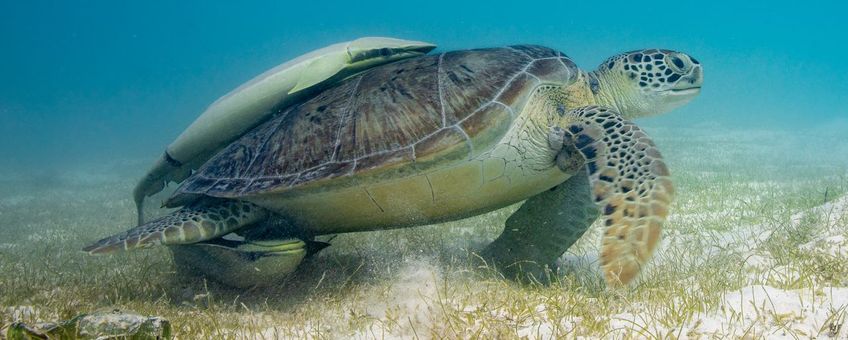
Climate change threatens seagrass, but it proves more resilient than expected
Wageningen Marine ResearchThis ecologically important ecosystem, which provides food and shelter for fish and turtles, protects our coastlines from erosion, and stores CO₂, is increasingly under pressure due to environmental changes. To better understand how seagrass recovers under different conditions, over thirty researchers conducted year-long experiments at ten locations along the western Atlantic coast, from the Caribbean to the United States. At each site, they first created gaps in the seagrass meadows and then monitored the recovery of both above- and below-ground biomass. In half of the plots, additional nutrients were introduced. This allowed the researchers to examine which factors influence the recovery process.
Warming waters: opportunity or threat?
Remarkably, warming seawater was found to even promote the recovery of seagrass in some areas. 'Unlike corals, seagrass seems to grow better in slightly warmer waters,' says marine ecologist Fee Smulders. 'But we must be cautious with this conclusion: there is a limit. If the water becomes too warm, for instance during a heatwave, entire seagrass meadows could disappear.'

Excess nutrients: not good news
Ocean warming is driving herbivores, such as sea turtles and fish, into more northerly areas, where they eat more seagrass. Another important pressure is that in areas where many turtles or fish graze on seagrass, additional pollution – such as fertilisers from agriculture entering the sea – can severely hinder recovery. ‘Too many nutrients promote algal growth, which smothers the seagrass,’ explains Fee Smulders. ‘We found that especially the combination of high nutrient and grazing pressure decreases seagrass resilience.'
Time for action
According to co-author Marjolijn Christianen, who is also affiliated with Wageningen University & Research, the study emphasises the importance of good water quality for the preservation of seagrass meadows. 'Seagrass is of great value – for marine life, for climate solutions, and for coastal communities. If we want these ecosystems to persist in a changing climate, we must prevent them from being further burdened.'
More information
- Read the article: Temperature Drives Seagrass Recovery Across the Western North Atlantic.
Text: Cecile Leuverink en Fee Smulders, Wageningen Marine Research
Images: Casper Douma (leadphoto: sea turtle); Marjolijn Christianen; Fee Smulders


